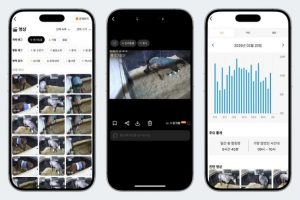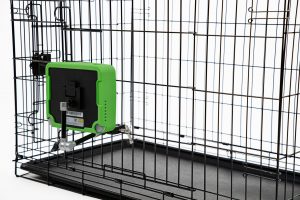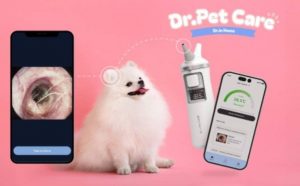A smartphone-based electrocardiogram device is practical, useful and feasible for cardiac evaluations of horses in field conditions, a recent study concludes.
Researchers with the University of Milan in Italy noted that smartphone-based electrocardiograms could be useful to equine practitioners, but previous studies had evaluated the accuracy of these smartphone-based devices only in hospitalised horses.
Different conditions in the field could influence the accuracy of the device, Elena Alberti and her colleagues said in the journal VetRecord Open.
For their study, they set out to compare the accuracy of smartphone-based ECGs, recorded via the AliveCor Veterinary Heart Monitor, which uses smartphone technology, and a standard ECG unit.
Standard ECGs and smartphone-based ECGs were recorded simultaneously in horses in both field conditions (in their stables in northern Italy) and in hospital conditions.
The smartphone ECGs were automatically digitised by the device and sent via email as a PDF. Stored ECGs were subsequently analysed on a laptop.
Suitably paired ECGs were evaluated by an experienced clinician who did not know which technology was used for each ECG.
The results demonstrated the accuracy of the AliveCor Veterinary Heart Monitor, they said.
Agreement between the standard ECG and smartphone ECG was found for heart rate and rhythm, evaluation of atrioventricular block and premature complexes, P wave and PQ interval duration, and QRS complex duration and polarity.
No differences were found between artefacts recorded in hospital and in field conditions.
When parameters of accuracy obtained using the device in field and in hospital conditions were compared, results were judged similar.
They concluded the smartphone-based monitor was a reliable diagnostic tool for veterinary practitioners in the field as well as in hospital conditions.
According to the authors’ experience on using AliveCor in field conditions, only exceptional atmospheric conditions may prevent recording, they said.
The first episode occurred in a stable during a storm, during which the message “electromagnetic interference too high” appeared on the smartphone screen and the tracing was interrupted.
The second episode happened in a stable located at about 1000 metres above sea level during winter. The temperature was about 4°C — outside the recommended temperature range of +10°C to +40°C for use of the device.
The study team comprised Alberti, Luca Stucchi, Giovanni Stancari, Elisabetta Ferro, Francesco Ferrucci and Enrica Zucca, all with the University of Milan; and Valeria Pesce, a veterinary practitioner in Genova, Italy.
Alberti, E., Stucchi, L., Pesce, V., Stancari, G., Ferro, E., Ferrucci, F., Zucca, E.(2020) Evaluation of a smartphone-based electrocardiogram device accuracy in field and in hospital conditions in horses. Veterinary Record Open 7: e000441. doi: 10.1136/vetreco-2020-000441
Lire la suite: www.horsetalk.co.nz






